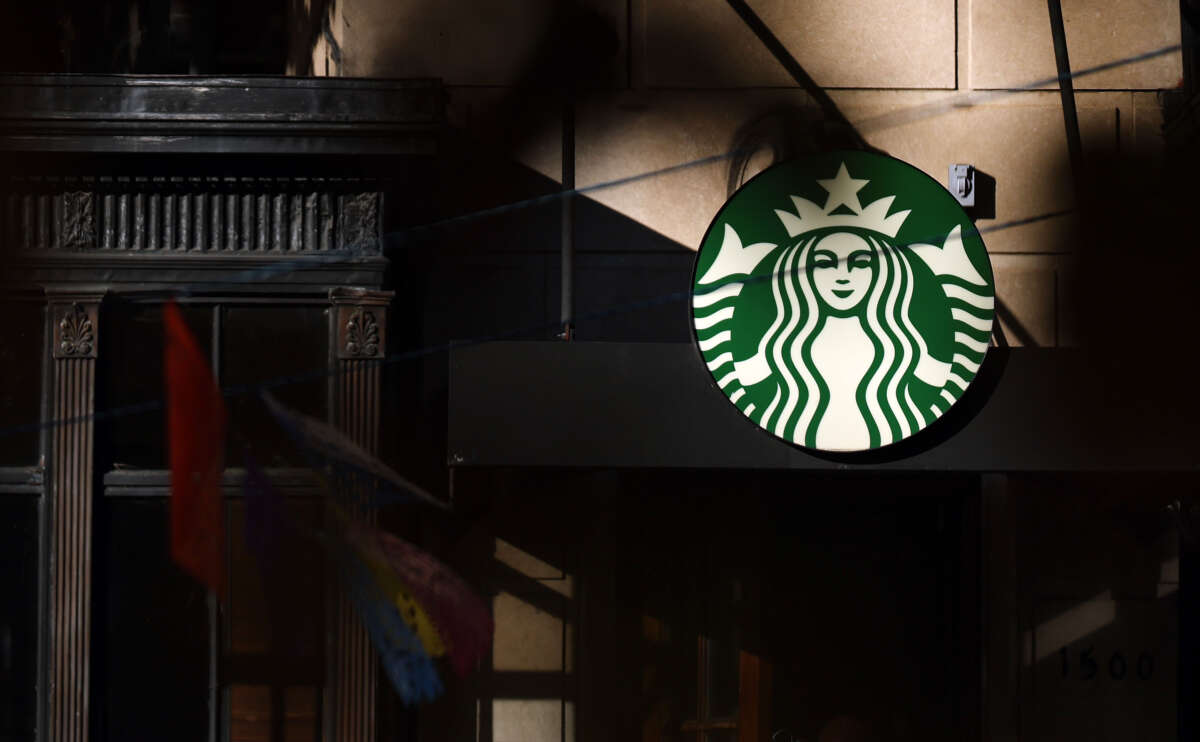Federal regulators issued a sweeping complaint against Starbucks on Wednesday saying that the company illegally closed 23 stores which had union activity.
National Labor Relations Board (NLRB) officials have ordered the company to reopen the stores and make workers whole for work missed and other costs incurred while the stores were closed. The complaint is expected to go before an administrative law judge next summer, per The New York Times.
The complaint says that Starbucks closed the stores in order to discourage or retaliate against union activity, per The Times. A large bulk of the closures came around July 2022. At least seven of the stores were already unionized. Workers have voted to unionize 370 Starbucks locations across the U.S. so far.
“This complaint is the latest confirmation of Starbucks’ determination to illegally oppose workers’ organizing,” Mari Cosgrove, Starbucks Workers United member and Starbucks worker in Seattle, said in a statement.
“It adds to the litany of complaints detailed in the company’s own report released this morning,” Cosgrove went on, referring to a report on labor relations released by the company on Wednesday. “If Starbucks is sincere in its overtures in recent days to forge a different relationship with its partners, this is exactly the kind of illegal behavior it needs to stop.”
The company responded to the complaint by saying that it regularly closes stores, and closed over 100 stores last year.
On the same day as the complaint, Starbucks released a report that was requested by shareholders that found that the company doesn’t have an “anti-union playbook,” rather chalking up the dozens of findings of federal labor law violations by the company to a lack of preparedness in response to the union campaign.
The report was prepared by Thomas Mackall, a former HR executive at food management company Sodexo, which has faced its own accusations of union busting and has also faced scrutiny in the past for profiting off of prisons, as Guardian labor reporter Michael Sainato pointed out. Mackall’s report was lightly critical of the company, saying that the anti-union campaign has still harmed workers and that the company must reframe its approach to the union.
In a statement, Starbucks Workers United said that the report showed that their fight for the union is as important as it has ever been.
“Today’s report, commissioned by and paid for by Starbucks, acknowledges deep problems in the company’s response to workers’ organizing — including firings, retaliation, store closings and withholding of benefits from unionized workers. The report shows Starbucks has a long way to go to shift policy and deconstruct the massive anti-union apparatus that remains in place and is active today,” the union said.
The union went on to say that the company should stop dragging its feet on negotiating a contract with unionized stores if it wants to prove that it is friendly to its workers and the union.
“If the company’s efforts at dialogue over the last few days are sincere, we are ready to talk. Indeed, we have always been ready,” Starbucks Workers United said. “Actions will speak louder than words.”
Angry, shocked, overwhelmed? Take action: Support independent media.
We’ve borne witness to a chaotic first few months in Trump’s presidency.
Over the last months, each executive order has delivered shock and bewilderment — a core part of a strategy to make the right-wing turn feel inevitable and overwhelming. But, as organizer Sandra Avalos implored us to remember in Truthout last November, “Together, we are more powerful than Trump.”
Indeed, the Trump administration is pushing through executive orders, but — as we’ve reported at Truthout — many are in legal limbo and face court challenges from unions and civil rights groups. Efforts to quash anti-racist teaching and DEI programs are stalled by education faculty, staff, and students refusing to comply. And communities across the country are coming together to raise the alarm on ICE raids, inform neighbors of their civil rights, and protect each other in moving shows of solidarity.
It will be a long fight ahead. And as nonprofit movement media, Truthout plans to be there documenting and uplifting resistance.
As we undertake this life-sustaining work, we appeal for your support. Please, if you find value in what we do, join our community of sustainers by making a monthly or one-time gift.
